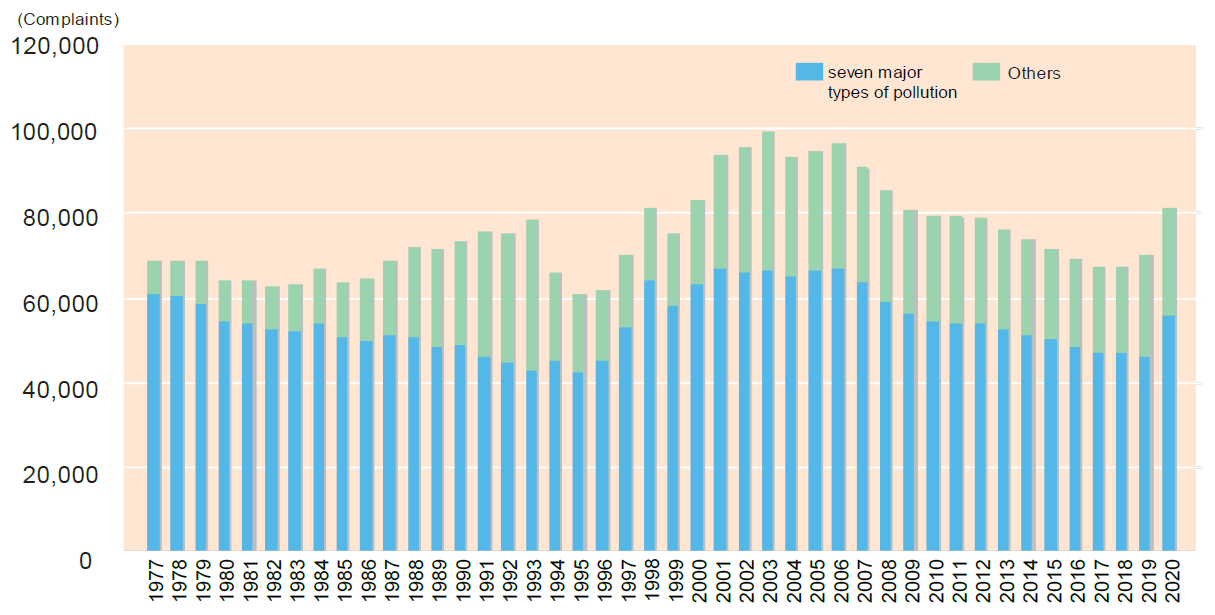Pollution complaints are issues that are closely related to local residents, and solving them promptly and appropriately is extremely important in creating a better living environment. Therefore, as part of the environmental dispute settlement system, consultation desks for pollution complaints have been established in prefectures and municipalities.
The staff in charge of pollution complaints at the pollution complaint consultation desks listen to the complaints of residents, conduct the necessary investigations to handle complaints, communicate with relevant organizations, provide guidance and advice on improvement measures to the parties concerned, and conduct processing consistently from receiving complaints to resolving complaints. The staff in charge of pollution complaints are responsible for the entire process for resolving disputes.
There are 10,842 employees nationwide who have been consulting on such pollution complaints (as of March 31, 2021). These employees play an important role in preventing pollution disputes.
The Environmental Dispute Coordination Commission conducts an annual Pollution Complaint Survey to understand the number of pollution complaints received at the pollution complaint consultation desk of local governments nationwide and the status of the treatment.
According to a survey in 2020, a total of 81,557 complaints were received at the consultation desks of local governments nationwide.
Among these complaints, 56,123 complaints were related to the seven major types of pollution, i.e., air pollution, water pollution, soil contamination, noise, vibrations, ground subsidence, and offensive odors. In contrast, 25,434 complaints were related to other types of pollution, such as dumping of waste.
By type of pollution, noise pollution was most complained about among the seven major types of pollution, followed by air pollution, offensive odors, water pollution, vibrations, soil contamination, and land subsidence. Among other types, dumping of waste occupied nearly 50% of complaints.
